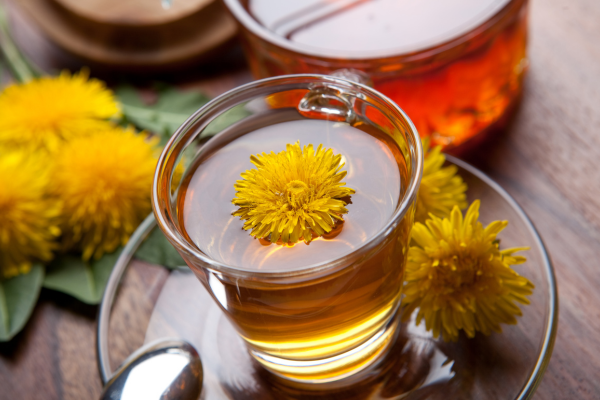When most people think of dandelions, they picture pesky yellow weeds that sprout up in lawns and gardens. However, these humble plants have a rich history in traditional medicine and are gaining popularity for their potential health benefits when used as tea. In this article, we’ll explore the nutritional properties of dandelion tea, its potential health benefits, and how to incorporate it into your diet.
What is Dandelion Tea?
Dandelion tea is an herbal beverage made from the leaves, flowers, or roots of the dandelion plant (Taraxacum officinale). The plant has been used for centuries in traditional medicine, especially in Europe and Asia, for its purported health-enhancing properties.
Dandelion tea comes in two main varieties:
- Leaf-based tea: Made from the dried or fresh leaves of the dandelion plant. This tea has a light, herbal flavor with a hint of bitterness.
- Root-based tea: Made from roasted or dried dandelion roots. This type of tea has a richer, earthier flavor, often compared to coffee.
Nutritional Profile of Dandelion Tea
Dandelion is a nutrient-dense plant, providing an array of vitamins and minerals. It contains significant amounts of vitamins A, C, and K, as well as essential minerals like calcium, potassium, and iron. Additionally, dandelion is a source of antioxidants, which help combat oxidative stress and support overall health.
Potential Health Benefits
1. Supports Liver Health
Dandelion tea is believed to promote liver health and function. Traditional medicine has long used dandelion root to detoxify the liver and aid in its regenerative processes. Some studies suggest that dandelion extract may help protect the liver from damage caused by toxins or oxidative stress.
2. Aids Digestion
The diuretic properties of dandelion tea can help reduce bloating and support digestion. Dandelion’s inulin content, a type of prebiotic fiber, can also promote healthy gut bacteria, aiding overall digestive health.
3. May Help with Weight Loss
Due to its diuretic effects, dandelion tea can assist in reducing water weight. Moreover, the prebiotic fiber content may promote feelings of fullness, potentially contributing to weight management when combined with a balanced diet and regular exercise.
4. Anti-Inflammatory and Antioxidant Properties
Dandelion tea contains antioxidants that can help reduce inflammation in the body. These compounds may contribute to a lower risk of chronic diseases such as heart disease and diabetes.
How to Make Dandelion Tea
To make dandelion tea, you can use either dried or fresh plant parts. If you’re using fresh dandelion leaves, flowers, or roots, ensure they are harvested from areas free of pesticides and pollutants. Here’s a basic recipe for dandelion tea:
Dandelion Leaf Tea
- Bring 2 cups of water to a boil.
- Add 1 to 2 teaspoons of dried dandelion leaves.
- Steep for 5 to 10 minutes, depending on desired strength.
- Strain and enjoy.
Dandelion Root Tea
- Bring 2 cups of water to a boil.
- Add 1 to 2 teaspoons of dried or roasted dandelion roots.
- Steep for 10 to 15 minutes.
- Strain and serve.
Precautions and Considerations
While dandelion tea is generally safe for most people, there are a few precautions to keep in mind:
- Medication Interactions: Dandelion tea might interact with certain medications, such as diuretics, lithium, and some antibiotics. Consult a healthcare professional if you’re on medication.
- Allergic Reactions: Some people may be allergic to dandelions. If you experience any signs of allergy, such as itching or swelling, discontinue use and seek medical advice.
- Pregnancy and Breastfeeding: Limited research exists on the safety of dandelion tea during pregnancy and breastfeeding, so it’s best to consult with a healthcare provider.
Conclusion
Dandelion tea is a versatile herbal beverage with a range of potential health benefits. Whether you’re interested in supporting liver health, aiding digestion, or simply exploring new herbal teas, dandelion tea could be a delightful addition to your wellness routine. As with any herbal supplement, it’s important to consider your individual health needs and consult with a healthcare provider if you have concerns. Happy brewing!






